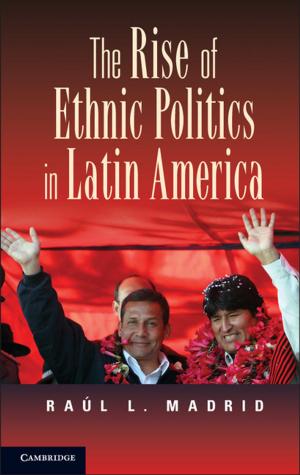Conservation Politics
The Last Anti-Colonial Battle
Nonfiction, Science & Nature, Nature, Environment, Ecology, Reference & Language, Law| Author: | David Johns | ISBN: | 9781108187909 |
| Publisher: | Cambridge University Press | Publication: | April 18, 2019 |
| Imprint: | Cambridge University Press | Language: | English |
| Author: | David Johns |
| ISBN: | 9781108187909 |
| Publisher: | Cambridge University Press |
| Publication: | April 18, 2019 |
| Imprint: | Cambridge University Press |
| Language: | English |
Whilst the science of conservation biology is thriving as a discipline, ultimately global conservation is failing. Why, when the majority of people say they value nature and its protection? David Johns argues that the loss of species and healthy ecosystems is best understood as human imposition of a colonial relationship on the non-human world - one of exploitation and domination. Global institutions benefit from transforming nature into commodities, and conservation is a low priority. This book places political issues at the forefront, and tackles critical questions of conservation efficacy. It considers the role of effective influence on decision making, key policy changes to reduce human footprint, and the centrality of culture in mobilising support. It draws on political lessons from successful social movements, including human anti-colonial struggles, to provide conservation biologists and practitioners in scientific and social science disciplines and NGOs with the tools and wider context to accelerate their work's impact.
Whilst the science of conservation biology is thriving as a discipline, ultimately global conservation is failing. Why, when the majority of people say they value nature and its protection? David Johns argues that the loss of species and healthy ecosystems is best understood as human imposition of a colonial relationship on the non-human world - one of exploitation and domination. Global institutions benefit from transforming nature into commodities, and conservation is a low priority. This book places political issues at the forefront, and tackles critical questions of conservation efficacy. It considers the role of effective influence on decision making, key policy changes to reduce human footprint, and the centrality of culture in mobilising support. It draws on political lessons from successful social movements, including human anti-colonial struggles, to provide conservation biologists and practitioners in scientific and social science disciplines and NGOs with the tools and wider context to accelerate their work's impact.















